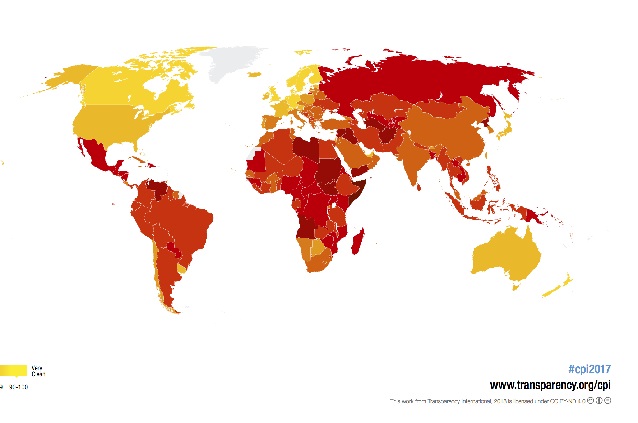Gov’t confirms 2017-2018 anti-corruption strategy

The strategy and an action plan were elaborated by a special commission. Photo by anticorruptiondigest.com.
Agenda.ge, 27 Sep 2017 - 13:42, Tbilisi,Georgia
The Government of Georgia has adopted an 2017-2018 anti-corruption strategy which is focused on prevention and higher level transparency in state institutions.
A statement released by the Ministry of Justice reads that Georgia has achieved the biggest success against corruption in the Eastern Europe and is distinguished by a low level of corruption among the European countries.
Georgia’s anti-corruption efforts were one of the key reasons the country became the chair of the Open Government Partnership,” the Ministry statement said.
Through the new strategy Georgia has moved to a new stage in combating corruption.
Now, like in democratic European nations, the state is focused on ensuring high-level of transparency and accountability of the state institutions, availability of information, increasing of the public involvement in a decision-making process and establishing more refined mechanism to prevent corruption,” the Justice Ministry reported.
The Ministry announced the anti-corruption strategy and an action plan were elaborated by the interagency coordinative council, with the involvement of 38 state bodies, 14 NGOs and three business representatives.
The new strategy covers 16 priority topics, more than 60 events and about 200 activities,” the statement reads.
The goals of the new strategy are:
- The establishment of a fair salary system in the public service.
- The elaboration of a communication strategy about corruption issues with the public.
- The establishment of a transparent salary and bonus systems for prosecutors, as well as refining the articles referring to ethics and interest conflicts in relation of judges and prosecutors.
- The implementation of an electronic program of judicial disciplinary proceedings and solving the issues of salary supplements and bonuses for judges.
- The adoption of the law on freedom of information.
- The refining of an administrative mechanism to make state-covered health programs more transparent.
- The empowerment of Civil Advisers’ Councils in municipalities.
- The improvement of control mechanisms for infrastructural projects and others.
 Tweet
Tweet  Share
Share








